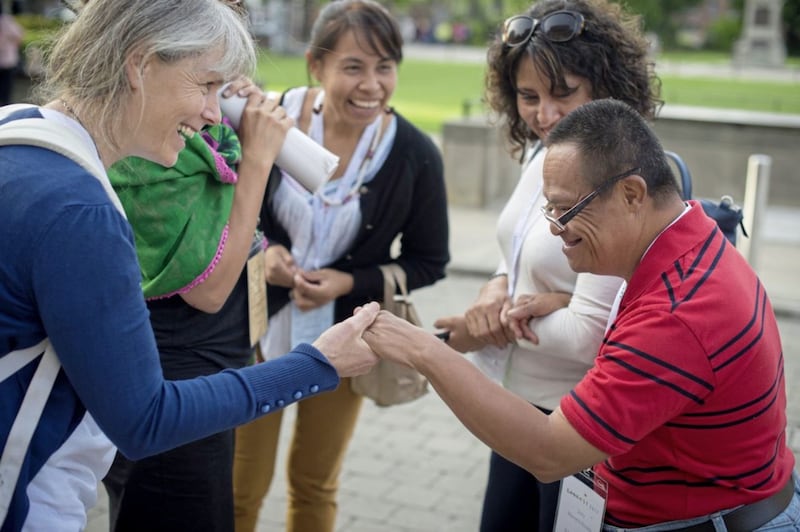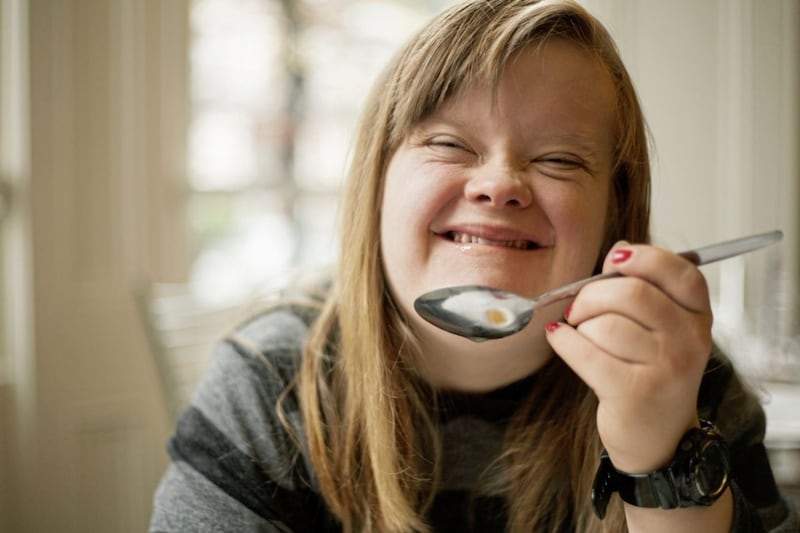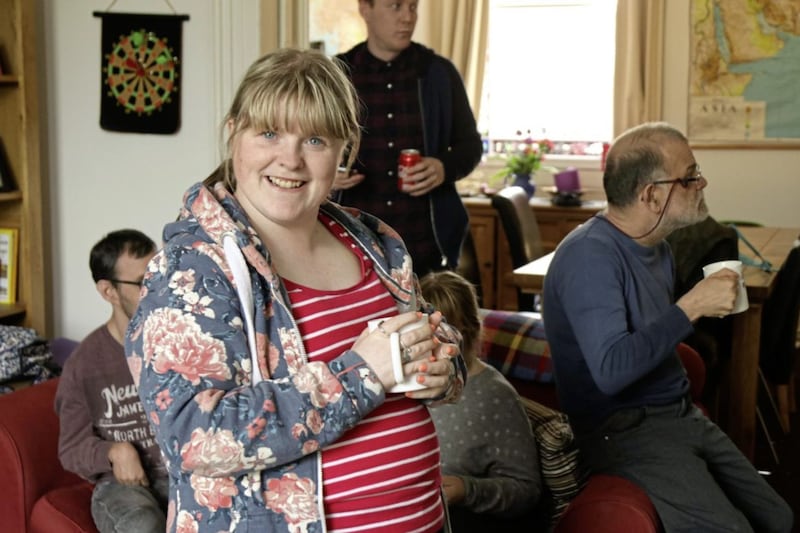IN these turbulent and uncertain times of Brexit, Trump and terror attacks, hope can sometimes feel like it is in short supply.
That is why a truly international event - 500 people from 37 countries, speaking at least 17 languages surely qualifies as 'international' - that has just drawn to a close in Northern Ireland is something of an antidote to all the doom and gloom.
L'Arche, which is a global network of people with and without learning disabilities and of faith and none, chose Belfast to host its Federation Assembly, which only meets every five years. Its mission is peace and justice, rooted in developing mutual relationships.
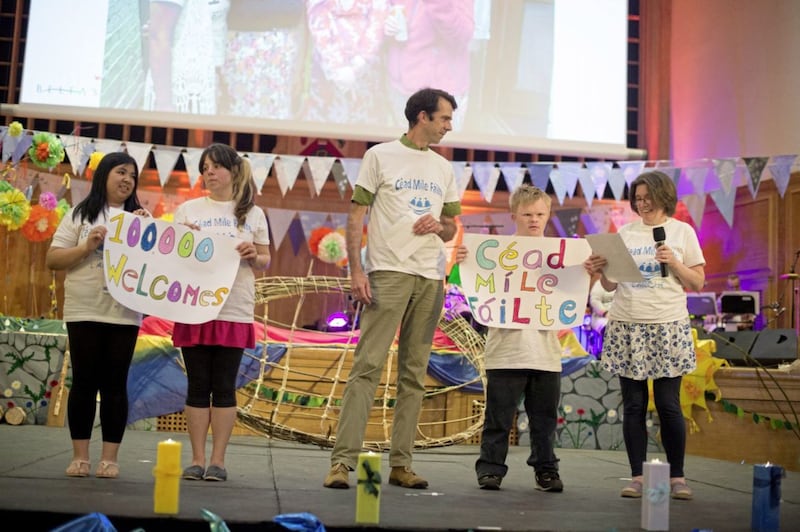
It is the first time the assembly has met in Northern Ireland. Scott Shively, who leads the L'Arche community in Belfast, said assembly locations are chosen "because of their cultural and historic experiences, and how these connect with the particular needs of L'Arche at the time".
"Past assemblies have been in Atlanta in the United States, Kolkata in India and Assisi in Italy," he said; delegates in Belfast this week came from places as challenging as Syria and Haiti.
The movement was founded in 1964 by Jean Vanier when he invited two men, who were confined within a local institution because of their intellectual disabilities, to come and live with him in his small house in Trosly-Breuil, a village north of Paris.
Vanier has since gone on to be internationally feted for his work - in 2015 he was awarded the Templeton Prize, regarded as something roughly equivalent to a Nobel Laureate for virtue - and L'Arche, which is French for 'the ark' has grown to encompass 149 communities, with 14 projects in 37 countries.
L'Arche fosters residential communities, work projects and friendships that create places of belonging for some of the world's most vulnerable citizens. These spaces enable each person to live as a full citizen and to contribute their unique gifts to society.
The first Irish community was in Kilkenny in 1978 and today L'Arche also works in Dublin, Cork and Belfast.
If you analyse what's happening in the world, where differences seem to be excluded and even punished, you realise how important the message of L'Arche is and how challenging this work can be
As with L'Arche's local communities, the assembly is a place where people with learning disabilities come together as equal partners with other members of society. Celebrating difference, not using it as an excuse to alienate 'the other' is its aim.
This particular form of unity is all the more important because of the fear of difference and the impulse towards exclusion that seems to be on the rise in these times, explained Mairead Boland-Brabazon, CEO of L'Arche Ireland and Northern Ireland.
"Ours might seem like a simple goal, but if you analyse what's happening in the world, where differences seem to be excluded and even punished, you realise how important our message is and how challenging this work can be," she said.
"In a world where people who are weaker are so often kept on the margins, L'Arche is a voice of unity.
"We firmly believe a different kind of society is possible."
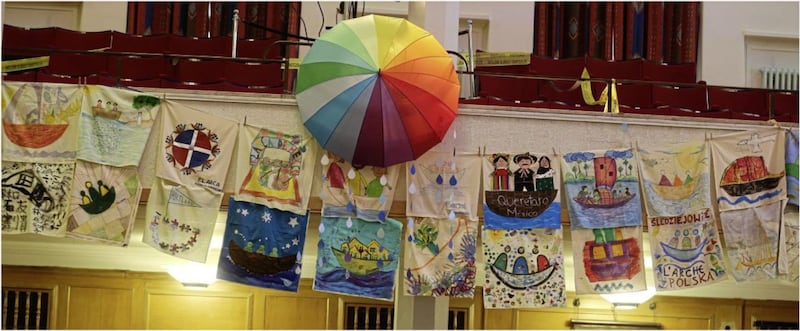
Ms Boland-Brabazon said a "wake-up call" was needed to help "people to re-think their approach to disabilities, differences and even to their own lives".
"Our main message is that everybody, regardless of their conditions or limitations, has a gift to offer to others and to society - that is what we have learned in L'Arche," she said.
"In L'Arche, people with learning disabilities are equals, involved in fundamental decision-making about their lives and about our mission to help change the way people with disabilities are seen and treated in all cultures."
She said that the mix of people involved in L'Arche and the assembly "shows us that a new world free of discrimination is within reach".
"That makes it a very powerful symbol of hope," she said.
In a world where people who are weaker are so often kept on the margins, L'Arche is a voice of unity
Speakers at the week-long assembly, which concluded on Tuesday and was held in Queen's University, included the Rev Dr Ruth Patterson of Restoration Ministries, Pádraig Ó Tuama, the leader of the Corrymeela Community, and film-maker Michael McDonald.
One of the highlights was a daytrip for all 500 delegates to Downpatrick, including visits to congregations and parishes in the area.
Eileen Glass, who is L'Arche's vice-international leader, said that "too often we are taught to fear what's different".
"We are told not be friends with people from other religions, colours, cultures, or sexual inclinations," she said.
"As a result, we have events such as Brexit, the recent elections in the United States and the clashes with migrants all around the world.
"These are all symptoms of our need to learn to live together, to see the gifts of each other and promote harmony, not discord."
And wouldn't more togetherness and concord go a long way in this messy world?
